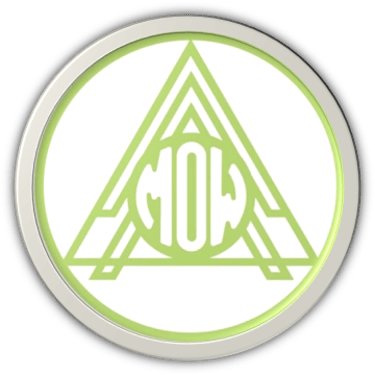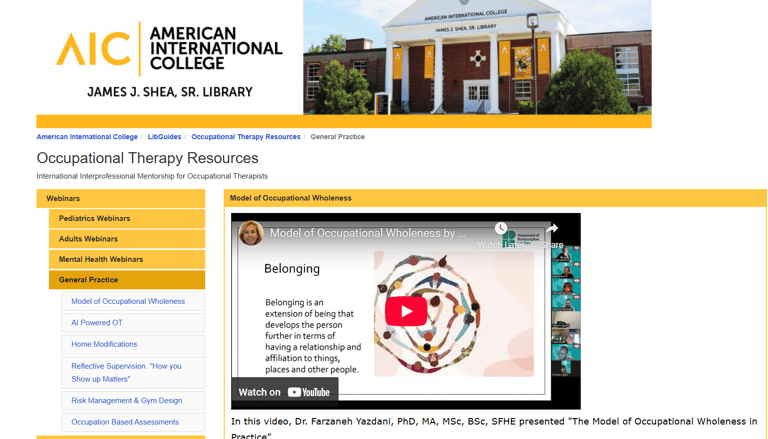Publications
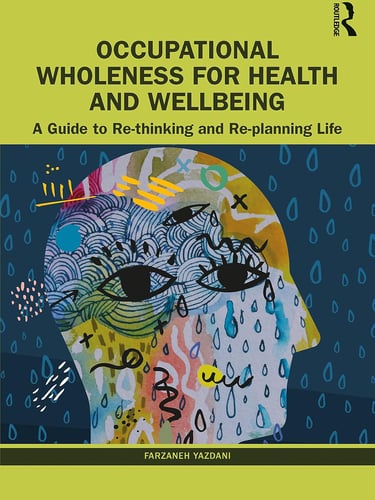

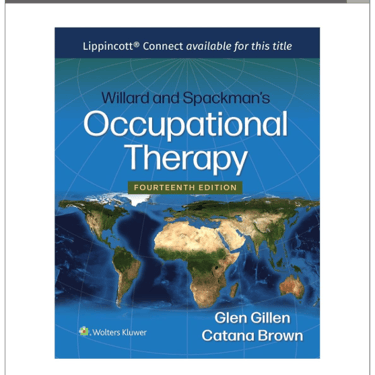
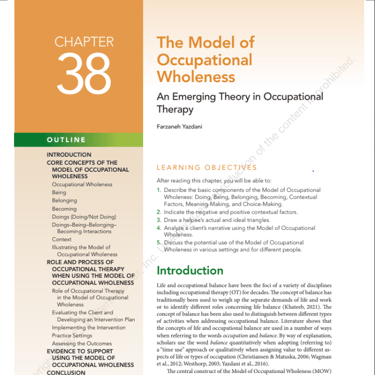
Kavousipor, S. Nazi, S. Karamali Esmaili, S. Yazdani, F. Ghanbari, S. (2024) Factors Influencing Women’s Perceptions of Sense of Being, Becoming, and Belonging During the COVID-19 Crisis, Journal of Rehabilitation Sciences & Research 11 (4), 179-184
Khalafbeigi, M., Yazdani, F., Genis, F., Hess, K. Y., & Kirve, S. (2023). Invisibility and diagnosis stigma: disabling factors for female adults with myalgia encephalomyelitis (ME)/chronic fatigue syndrome (CFS) in a small-scale qualitative study in England. Irish Journal of Occupational Therapy, 51(2), 52–59. https://doi.org/10.1108/IJOT-08-2022-0032
S Kavousipor, S Nazi, S Karamali Esmaili, F Yazdani, S Ghanbari (2024) Factors Influencing Women's Perceptions of Sense of Being, Becoming, and Belonging During the COVID-19 Crisis Journal of Rehabilitation Sciences & Research 11 (4), 179-184
S Nazi, S Kavousipor, S Pourahmad, F Yazdani, M Rezaee, S Ghanbari (2024) Assessing Life Balance During the Early Phase of COVID-19 Physical Isolation in Iranian Society Journal of Rehabilitation Sciences & Research 11 (1), 18-24
Yazdani, F. Rassafian,M. Nazi, S. Rezaee,M. (2021) The COVID-19 Pandemic May Force the World to Reflect on the Pre-Pandemic Style of Life. International Journal of Travel Medicine and Global Health.
Yazdani, F., Nazi, S., Kavousipor, S., Karamali Esmaili, S., Rezaee, M., & Rassafiani, M. (2023). Does covid-19 pandemic tell us something about time and space to meet our being, belonging and becoming needs? Scandinavian Journal of Occupational Therapy, 30(7), 1064–1073. https://doi.org/10.1080/11038128.2021.1994644
Yazdani, F. Nazi, S. Kavousipour S, Esmaili S. Rezaee M. (2021) The perceived impact of the COVID 19 pandemic by the public in Iran. Scandinavian Journal of Occupational Therapy.
Yazdani, F., Stringer, A., Nobakht, L., Bonsaksen, T., & Tune, K. (2020). Qualitative Analysis of Occupational Therapists’ Reflective Notes on Practicing Their Skills in Building and Maintaining Therapeutic Relationships. Journal of Occupational Therapy Education, 4 (4). Retrieved from https://encompass.eku.edu/jote/vol4/iss4/14
Bonsaksen, T., & Yazdani, F. (2020). The Norwegian occupational wholeness questionnaire (n-owq): scale development and psychometric properties. Scandinavian Journal of Occupational Therapy, 27(1), 4–13. https://doi.org/10.1080/11038128.2018.1426783.(3 citations). (1.32)
Yazdani, F., Harb, A., Rassafiani, M., Nobakht, L., & Yazdani, N. (2018). Occupational therapists’ perception of the concept of occupational balance. Scandinavian Journal of Occupational Therapy, 25(4), 288–297. https://doi.org/10.1080/11038128.2017.1325934. (IF 1.32).
Rassafiani,M. Sahaf, R. Yazdani, F. (2018). Occupational Therapy in Iran: Past, Present, and Future. 1(1):49-56., DOI:10.3928/24761222-20180212-04.
Yazdani, F. Bonsaksen, T. (2017) Introduction to the Model of Occupational Wholeness. Ergoscience, 12(1):32-36., DOI:10.2443/skv-s-2017-54020170104.
Nazi, S. Shafaroodi, N. ,Lajevardi, L. , Mehraban, A. , Yazdani, F. and Hosseinzadeh, S. (2017) Life Balance of Mothers of Children with Cerebral Palsy. International Journal of Clinical Medicine, 8, 583-594. doi: 10.4236/ijcm.2017.811055. (IF 2.613). (3 citations)
Yazdani, F., Roberts, D., Yazdani, N.,Rassafiani, M. (2016). Occupational balance: a study of the sociocultural perspective of Iranian occupational therapists : équilibre occupationnel: étude sur la perspective socioculturelle des ergothérapeutes iraniens. Canadian Journal of Occupational Therapy, 83(1), 53–62. https://doi.org/10.1177/0008417415577973.(IF 1.255) (14 citations)
